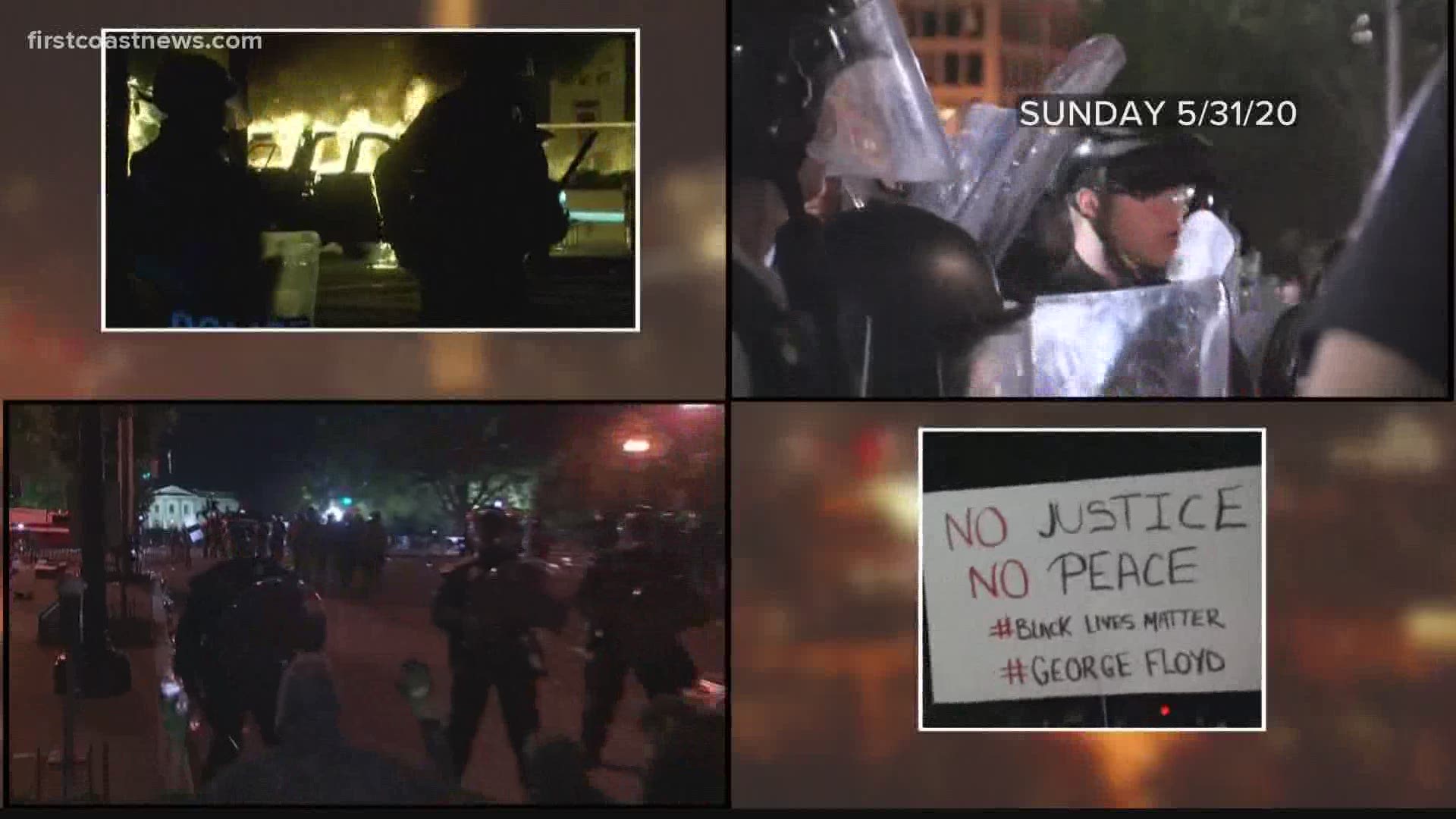JACKSONVILLE, Fla. — Street demonstrations in cities like Jacksonville, New York and Minneapolis are now being mirrored in cities across the globe in a display of solidarity.
"The gut-wrenching nature of the video has sparked this outrage," said Dr. John Woodward.
Woodward, a professor of humanities at Florida State College Jacksonville, follows the political environment in Europe.
There have been other incidents of police brutality here in the United States, and some have led to protests, so what makes this one different?
Why is there a global display of solidarity?
"I think that the outrage in the United States is one of the things that has made this different," said Woodward.
He said Europeans who have always fought against disparity see a different America in the George Floyd protests.
"To see the people actually standing up against this collectively, in cities where this particular incident did not occur, gives the European population hope that Americans are not going to sit by and let this continue to happen," he said.
The anger over the death of George Floyd is seen in demonstrations in cities like Berlin, Copenhagen, Krakow, Auckland, Vancouver, Mexico City and Brazil, to name a few.
"This moment crystallizes many decades if not many centuries of oppression," said Dr. Pavez Ahmed.
Ahmed is director of diversity and inclusion at The University of North Florida's College of Business.
He said he was among the protesters in Jacksonville over the weekend.
"This is a thing that touches everyone," he said. "You don't have to be black to feel about this thing."
Pavez, who is outspoken on human rights issues, said it is clear that Americans are exhausted by the number of police brutality complaints.
"People are expressing 'enough is enough,'" he said.
Like Woodward, he too has seen the global reaction and demonstrations of solidarity.
It is obvious to him that the expansion of social media platforms have spread the emotions and made the world a lot smaller.
"Part of it is social media, social media has brought us closer together," said Ahmed.
But is the cry now being heard around the world loud enough to bring change to the current status?
"Expressing outrage in the streets is just one way of bringing change," said Ahmed, "but ultimately what will bring change is electing people who are responsive to the needs of people."
He said that means people who will listen with their heart and are committed to closing the gap of disparity; the divide between the "have" and the "have not."
He believes the time for change is now, but said given the systemic structure his optimism of anything happening soon is very small.

